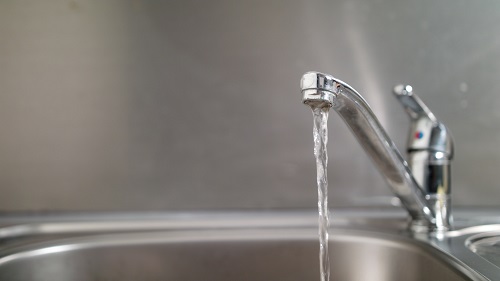Pittsburgh Water Authority Charged Over Lead
THURSDAY, FEBRUARY 7, 2019
On Friday (Feb. 1), Pennsylvania Attorney General Josh Shapiro filed 161 criminal charges against the Pittsburgh Water & Sewer Authority, alleging that the authority had failed to notify residents of when lead pipe replacements would be occurring, and failed to sample water within a specified timeframe after the pipes had been replaced.
According to the Associated Press, the charges are a breach of Pennsylvania’s safe drinking water law. Previously, the PWSA admitted civil liability; state regulators fined the authority $2.4 million.
Charges Filed
Currently, the PWSA is under a mandate to replace at least 7 percent of its lead lines every year. Prosecutors allege that in 2016 and 2017, the authority replaced lines without providing necessary advance notice. (The law mandates that customers are warned ahead of time and are provided with information on how to minimize exposure to lead.)

 |
| profstocktv / Getty Images |
|
On Friday (Feb. 1), Pennsylvania Attorney General Josh Shapiro filed 161 criminal charges against the Pittsburgh Water & Sewer Authority, alleging that the authority had failed to notify of when lead pipe replacements would be occurring, and failed to sample water within a specified timeframe after the pipes had been replaced. |
“Pennsylvanians have a constitutional right to clean air and pure water—I’m here to defend that,” said Shapiro. “The Water & Sewer Authority knew it was required to notify residents of its plans to replace service lines, and it knew it was required to sample the lines for lead content—yet it failed to do so. That makes PWSA criminally liable under the Safe Drinking Water Act.”
According to the state AG, Pennsylvania law makes mandatory that to remediate a lead level problem, a water system operator must:
- Replace 7 percent of its water lines, until there are two consecutive monitoring periods that provide results at or below the action level;
- Notify residents using the system at least 45 days before replacing any lines, to help minimize any exposure to lead that may spike during pipe replacement; and
- Collecting samples within 72 hours of the pipes being installed.
In 2016, the PWSA carried out testing at two different times, and each resulted in reports of lead levels that are higher than what is allowed under state law.
The PWSA estimated that it needed to replace 1,341 lead lines by June 30, 2017, to meet the 7 percent requirement advised by the Pennsylvania Department of Environmental Protection. The PSWA noted that it had not provided a number of residents with notice, along with failing to collect the necessary water samples within 72 hours.
In November 2017, the DEP fined the authority $2.4 million, entering into a civil consent order and agreement, going on to refer the matter to the Office of the Attorney General.
Moving Forward
Myron Arnowitt, Pennsylvania director of Clean Water Action, noted that the authority has moved to improve its lead pipe replacement program, which included replacing privately owned water pipes at no charge, namely those pipes that run between the curb and a house. The PWSA issued a report in mid-January noting that 2,825 lead service lines had been replaced since July 2016. The 2019 program for lead line replacement is budgeted at $49 million, and is slated to see the replacement of over 3,400 lead lines.
If convicted, the fine for each of the 161 counts is a maximum $12,500. Shapiro noted that charges were being filed against the Authority as an entity, because there was no evidence of a single person intending harm to those using the system.
“This money isn’t going to a fund in Harrisburg—it’s coming back here to neighborhoods like Lawrenceville that were affected by these violations,” Shapiro said. “I hope that, with these charges, we can shine a light on these violations and force the necessary reforms to take shape to keep Pittsburgh’s drinking water safe.”
Tagged categories: Government; Health & Safety; Health and safety; Lawsuits; Lead; potable water







